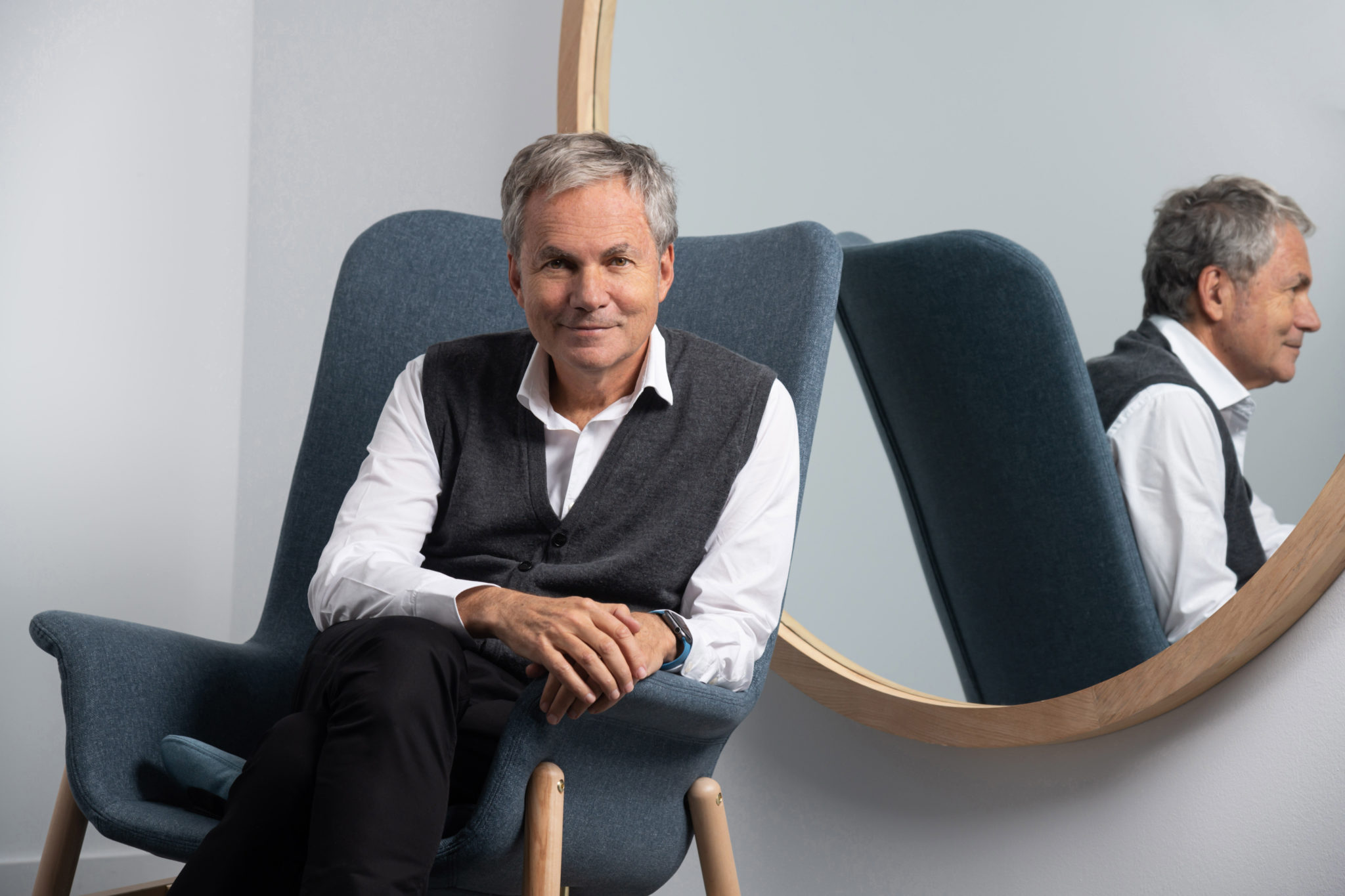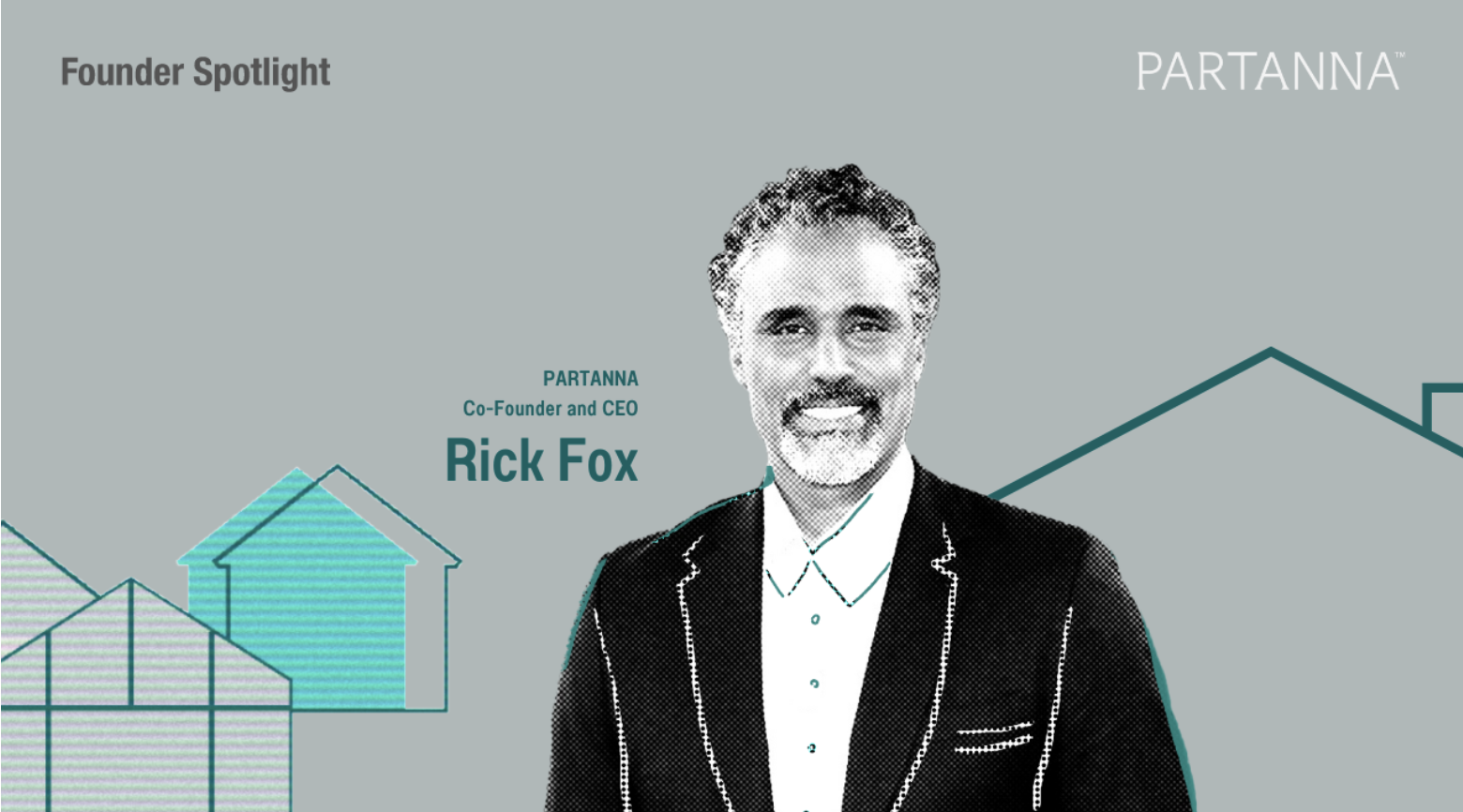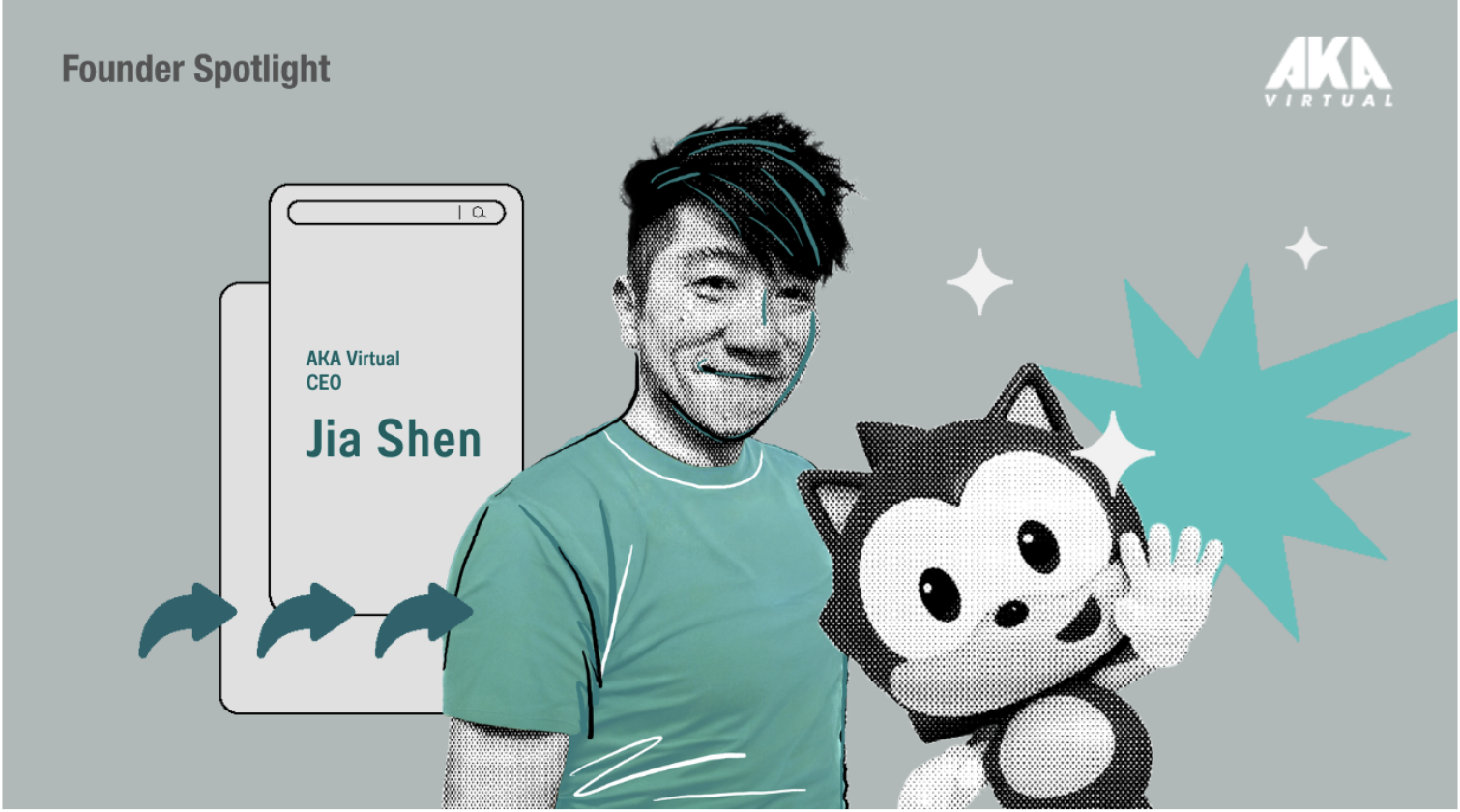AsiaTechDaily – Asia's Leading Tech and Startup Media Platform

How Martin Varsavsky, Chairman Prelude Fertility / Inception Founded 8 Successful Companies In The United States And Europe?
Martin Varsavsky is a serial entrepreneur, professor, and investor who has founded eight companies in the United States and Europe in the last 30 years.
In 2015, backed by Lee Equity, Martin founded Prelude Fertility/Inception, now the largest chain of fertility clinics in the USA.
In 2017, Martin founded Overture Life, focused on automating the embryology lab. Overture is backed by Khosla Ventures, Marc Benioff, and Allen & Company. In 2018 Martin founded Goggo Network, an Axel Springer/Softbank backed startup that is helping develop the legal and engineering framework for fleets of autonomous vehicles and plans to deploy these fleets.
At the start of his career in the 1990s, Martin built Viatel, which became the first pan-European fiber-optic network, followed by Jazztel, a telecom operator. When Martin sold Viatel, the company was worth $ 1.2 billion, and when he left Jazztel, it was worth $ 770 million. Jazztel was subsequently sold for $4.5bn.
In the early 2000s, Martin built Ya.com, which was sold to Deutsche Telekom for $ 650 million.
Martin subsequently co-founded Eolia, together with Miguel Salis, one of Spain’s largest renewable energy companies, which sold for $1.6bn in 2019. He is also a member of the board of the German media company Axel Springer.
Martin Varsavsky occasionally teaches entrepreneurship at Columbia Business School. He has also taught at Columbia University, New York University, and IE University and frequently speaks at numerous conferences. Martin Varsavsky is also an investor through Jazzya, his family office, and through to funds with a combined pool of $200 million. These funds are Varsavsky Axel Springer or VAS Ventures, which does seed and early-stage investing and Martin Varsavsky Bankinter or MVB, which does late-stage investing and funds.
In an exclusive interview with AsiaTechDaily, Martin Varsavsky says:
“The main obstacle is not being fully conscious of your idea. I would also say that founders tend to overestimate their revenue and underestimate their costs. It’s key for me that an entrepreneur knows or can estimate how much things cost. As an investor, I often realize that founders don’t have a precise idea of what they are getting into. Once I sense this, it generally disqualifies a founder.”
Read on to know more about Martin Varsavsky and his successful journey across businesses and geographies.
Please tell me about your background, and what are you working on currently?
Martin Varsavsky: I am a serial entrepreneur driven by my impatience. I want to enable things to work better, faster. To that end, I have founded eight companies in the United States and Europe in the last 30 years.
Currently, I am Chairman of Prelude Fertility / Inception, which I founded in 2015. It has grown to be the largest fertility services provider in the US, with a turnover of $280 million a year. We continue to expand across the US, yet I have recently stepped down as CEO to be able to focus on my latest two startups: Overture Life which is making In Vitro Fertilization (IVF) more accessible than ever by developing an automated embryology lab and Goggo Network which is developing the legal and engineering framework of European autonomous mobility networks and plans to deploy these fleets.
Most of my past ventures have taken place in Europe’s tech sector. My first company in telecommunication was Viatel which I founded in 1990 and provided low-cost long-distance calls and later became an alternative telecommunications service provider in Europe. I made an initial $200,000 investment to start Viatel, and when I cashed in my stake, it was worth about $240 million. I left Viatel 8 years later, in 1998, to start Jazztel, a provider of telecom and Internet services which I founded in Spain. At that time there was only one very costly internet provider in the country and during the internet bubble my 20% stake was worth $1 billion. In 2014 Jazztel was again sold to Orange for 3.4 billion. Subsequently, I also launched Ya.com in 1999, a DSL provider and Internet portal which I sold a year later to Deutsche Telekom for 650€ million. It is difficult to translate ya into English, but ‘now,’ ‘already’ or ‘right away’ would be my first options. The next logical step to me was cloud computing and I founded Einsteinet, my only company which has failed. Inexorably, this didn’t stop me. Subsequently launched Fon, the world’s largest WiFi network, and I co-founded Eolia, one of Spain’s largest renewable energy companies, which sold for $1.6bn in 2019.
I moved back to Madrid about two years ago after some time living in San Francisco. From here, I continue to have very solid ties to Silicon Valley. I have recently partnered with Bankinter and Kanoar Ventures to start the MVB Fund, a 200 million Fund of Funds, giving Spanish investors access, for the first time, to the biggest venture capital funds in the world, most notably those that incubate Silicon Valley unicorns.
What motivated you to get started with your company?
Martin Varsavsky: The idea for my companies always comes from my own life experiences. My involvement and interest in fertility issues, for instance, was the result of my personal experience with IVF as my wife and I turned to it when we were trying to get pregnant. In 2014 I founded Prelude Fertility to give women more control over their childbearing choices, almost like an insurance policy. Instead of targeting women who find it hard to conceive, we involve women in their late 20s to mid-30s when it’s easier to harvest eggs and when those eggs will be later on more likely to lead to healthy babies. We’re about helping women and couples have healthy babies when they’re ready.
The more I know about IVF, the more improving its processes has become a priority for me. Embryo fertilization is still being done manually, and it has hardly evolved since the 1980s. It is also very expensive and only accessible to people with high purchasing power. Furthermore, there is a great deal of difference in success rates in embryology labs. Automation seems to me the only way to get the volume and quality necessary to make these treatments more accessible and with a higher success rate, and that is where Overture Life comes in.
The idea of founding Goggo Network, on the other hand, came to me in a traffic jam. I have always organized my life so that I don’t have to travel to work. Currently, my home, work, and kids’ school are all within 5 minutes, and the airport is only 15 minutes away. When I inevitably do run into traffic, all I can think about are ways to avoid this headache that inevitably arises in all cities. Autonomous vehicles are closer than ever to becoming a reality. In Spain, the first autonomous bus will start offering service next month at the campus of one of the main Universities in Madrid, and the first pilot for a commercial autonomous bus line will be running in the coming months in Malaga. Yet, at the moment, fully self-driving vehicles function on only very restricted routes. Once autonomous vehicles are allowed on roads, with their limited capacity, regulation is key. As in the telecommunications market, the importance of early regulation is crucial. We created Goggo Network intending to help create a regulatory framework for the fair, competitive, and safe implementation of networks of self-driving vehicles focused on solving the challenges of commuting.
My proposal is that each state award licenses to operators of autonomous vehicle fleets according to specific criteria. These licenses to be able to put autonomous vehicles on the road will be regulated to prevent monopolies and foster partnerships. Non-European companies may only participate in consortia as minority owners. It is not that I am a protectionist. On the contrary, but developing critical infrastructure in autonomous mobility is key to preventing a scenario where the winner takes it all. Mobility should not be left to the forces of the market alone. It was very similar in the telecommunications market. Waymo, Uber, Tesla, or even Chinese competitors would be slowed down. And the state would still receive considerable additional revenue through the auctioning of licenses, as in the case of mobile radio frequencies.
How have you attracted users and grown your company from the start?
Martin Varsavsky: For Prelude, I quickly realized that the typical tech startup model would not work. Because of regulation and other hurdles, I decided it was best to buy into an existing fertility clinic and egg bank. I invested an initial 200 million, but I also needed to find funding, this time from private equity instead of venture capital. I eventually settled on Lee Equity Partners, which focused on middle-market transactions and had been eyeing the potential of the IVF business. Additional investors include Reproductive Biology Associates and My Egg Bank North America. What distinguishes Prelude is its financial backing, the national partnerships it is developing, and the extent to which it is marketing itself to young professional women as opposed to older women at the end of their fertility cycle. The Prelude Method includes egg freezing and preservation, embryo creation when the woman is ready, genetic screening for congenital diseases and chromosomal abnormalities and single embryo transfers to minimize the chances of conceiving twins or triplets (which often occurs when women transfer multiple eggs during IVF).
On the other hand, Overture Life and Goggo Network are pre-revenue. Overture Life is still pretty much in stealth mode. The final goal is to license NaturaLife, a compact embryology laboratory that automates in vitro fertilization processes using robotic technology and machine learning. Rather than selling the equipment, we would provide the service.
At Goggo Network, we are still in the process of working with interested groups to achieve regulation in mobility. We are based in France and Germany and now, since a government has finally been formed, hopefully, we can focus on Spain too. Once a regulation is in place in Europe, Goggo Network will try to obtain a license to be able to deploy an autonomous mobility network.
How much money (funding) have you raised in total so far? When was the recent funding round?
Martin Varsavsky: In December 2019, Goggo Network, which I founded in September 2018, completed a Series A financing round of 44 million euros from SoftBank Group and Axel Springer Digital Ventures.
Overture Life, on the other hand, has raised over 20 million dollars, the last of which came in mid-2019. We attracted investors such as Felicis Ventures, Rakuten, Allen & Company, Khosla Ventures, Marc Benioff, and Anne Wojcicki (co-founder and CEO of the personal genomics company 23andMe).
How do you decide when to go out for fund-raising? What were the internal decision processes in determining when to begin fund-raising, and what were the logistics for this?
Martin Varsavsky: Typically once I have an idea, I start an initial incubation phase. After this concept stage and if the business seems promising, I start presenting the idea to investors. The interest of other investors is for me a sanity check.
Given my previous experience, I have a network of investors and venture capitalists that I reach out to. I am very much in contact with other entrepreneurs. I know many well from socializing at events, dinners, outings. It is very healthy for us to meet in groups, it helps to be able to relate to similar experiences, almost like a self-help meeting!
How many investors have you met so far, and which among them have invested in your past funding rounds? And how long does it take on average to finalize each funding round?
Martin Varsavsky: As I mentioned, I already know many investors, and I am constantly in contact with investors in my companies who often also put me in touch with other investors. For instance, I am on the Board of Axel Springer, so their involvement with Goggo Network was very natural. Autonomous Mobile Networks will have a digital content component, and they seemed obvious partners.
It takes, on average, about 3 to 4 months to finalize each funding round. From the beginning, when you prepare the documentation until we finalize the legal documents.
How did you meet these investors, and which channels worked best for you?
Martin Varsavsky: One channel I particularly like is by participating in technology conferences and debates. Not only is it great for networking, but one also has the opportunity to hear what the future being cultivated will look like.
What are the biggest challenges you’ve faced and obstacles in the process of fund-raising? If you had to start over, what would you do differently? (Your insight or advice on this would be very helpful for startups)
Martin Varsavsky: The main obstacle is not being fully conscious of your idea. I would also say that founders tend to overestimate their revenue and underestimate their costs. It’s key for me that an entrepreneur knows or can estimate how much things cost. As an investor, I often realize that founders don’t have a precise idea of what they are getting into. Once I sense this, it generally disqualifies a founder.
When I started doing business in Spain, I would have a hard time finding funding in Spain. I would have to search for it in the US. This no longer seems to be so evident. Ironically, through the MVB Fund, I am now finding Spanish investors who want to invest in the US!
What are your milestones for the next round? And what are your goals for the future?
Martin Varsavsky: Prelude Fertility continues to expand its presence throughout the US, likely via the acquisition of major fertility centers.
In Overture Life, we aim to hit cash flow positive this year, given our market strategy. I am very confident about this.
In Goggo Network, the timetable depends on the country where it will be implemented. In France, for example, we hope to have the regulation ready to be able to launch a call for tenders for autonomous mobility networks in 2022, while its deployment would not be possible until at least 2024.
What are the most common mistakes founders make when they start a company? (or What should all first-time startup founders know before they start their business?)
Martin Varsavsky: One of the common mistakes is getting too attached to your idea before confirming its viability. Founders need to know their market well. They must be ready to thoroughly research it before to confirm that their idea is worth pursuing.
What do most startups get wrong about marketing?
Martin Varsavsky: Many founders tend to see marketing as a quick mathematics equation, where they will see a certain amount of impressions per dollar. But most underestimate that the marginal return drops as you increase marketing spend. Founders overestimate marketing and underestimate PR. Good press is much more powerful than advertising.
What’s the best advice you’ve ever received? And What advice do you have for someone who is interested in doing similar things like yours or in a similar direction?
Martin Varsavsky: The best advice I ever got was from my father, a Harvard Astrophysics Ph.D., who gave his heart to our native Argentina, building, among other things, the largest radio telescope in South America. He was repaid by the Argentine government with humiliation and forced exile to the United States. His advice to me was “never move back to Argentina”. As tempted as I was to return to Argentina when the country appeared to finally become a dream democracy, I never did. Don’t get me wrong; I love Argentina. But had I not listened to my father, I probably would have gone in and out of bankruptcy a few times in my life; something that has happened to quite a few of my Argentine friends who never cease to be surprised by the Argentine government’s uncanny ability to make policy mistakes.
The advice I would give to someone wanting to start their own company is to be tenacious. The most successful ideas require incredible determination, you must be willing to try consistently and for a long time.
What are the one or two things that you would do differently if you could go back to 10 years ago?
Martin Varsavsky: I suppose I would have done things differently regarding EinsteinNet, the cloud computing company I founded before cloud computing took off. The idea behind it was to sell software over a private fiber-optic network. I was very attached to the idea, but it was not the right time. EinsteinNet collapsed in 2003 and left me with a personal loss of $50 million.
I learned something as a result of what happened with EinstenNet that has become one of my mottos: Don’t invest on your own. I am no longer ever the sole investor of any of my companies. If other people don’t want to back me, it’s a sanity check. I need other investors to know I am not crazy.
You can follow Martin Varsavsky here.
Are you looking to secure investment for your startup or a keen startup enthusiast, keep an eye on our interview section.
Follow Asia Tech Daily to know about the innovative startups and how they are revolutionizing the ecosystem.





